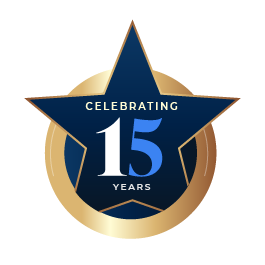Intellectual property is the collective term for the way in which ideas are expressed. These ideas are protected from being copied by way of intellectual property by falling into certain categories such as copyright, trademarks, patents and design rights.
There are a number of intellectual property rights identifiable on websites. For example, any logos are likely to be protected by either trademark or the law of passing off. Other types of intellectual property include patents and design rights. However, the most common intellectual property on websites is copyright and the underlying ownership and value of the website as an asset capable of being sold.
Copyright
Copyright law protects any creative work and websites are likely to have any one or more of the following:
- Text / Literature
- Designs / Graphics / Images
- Website Layout
- Music
- Broadcasts
- Software
The creator of the work is protected by copyright law almost instantly and, unlike with other forms of intellectual property, there is no legal requirement for the copyright to be registered (unlike other jurisdictions). However copyright law is subject to the work qualifying to be protected under copyright law. To satisfy this criteria the work must be original and recorded either in writing or otherwise; neither of which are onerous criteria to satisfy.
Ownership
The owner of an intellectual property right in a website is likely to be the creator. The exception to this rule is where the website is being created by an employee – in this scenario the owner of the intellectual property is the employer unless there is an agreement to the contrary. However this should not be confused with circumstances where third party contractors have been employed to create websites as sometimes their agreement include clauses which states they maintain ownership of any intellectual property. Owners of websites should also be aware that even where these clauses do not exist, in the absence of anything to the contrary, the contractor will own the intellectual property. This could cause many long term problems as the website owner will only have a licence to use the intellectual property. To avoid this problem the website owner should insist on owning the intellectual property to the website.
Infringement
An intellectual property right, such as copyright, is infringed when it is copied by someone without authority to do so. For example, if someone copies the literature on your website and reproduces it on their own. However there is no infringement where two people come up with the same creative content or idea at the same time. In the latter example, if either party wished to allege copyright infringement, they would have to show that the other party had access to the creator’s materials in order to copy them.
Website owners should themselves be aware of inadvertently infringing the intellectual property of another website. For example, using a hyperlink to connect their website to another website without the permission of the owner of the connected website maybe an infringement. This could be prevented by having a linking agreement or by having a hyperlink to only the homepage of the connecting site as often the owners do not like the homepage being bypassed.
Furthermore displaying the brand name or logo of another business on your website, even next to a hyperlink, could risk infringing a trademark.
Infringement takes place unless one of the following exemptions apply:
- Non-commercial research and private study
- Criticism, review and reporting current events
- Teaching in educational establishments
- Helping the visually impaired
- Time shifting (a recording for domestic use for the purpose of reviewing it at a more convenient time)
Ideally, specialist IP legal advice such as available here should be sought on the above but website owners should attempt to obtain the permission of the owner of any other website to whom there is a hyperlink and at the very least consider inserting a disclaimer.
Intellectual Property Office
The Intellectual Property Office (IPO) is responsible for intellectual property rights in the UK. The IPO examines, issues and reject patents as well as maintaining the appropriate register of registered intellectual property rights.
In Europe this function is carried out by the Office for Harmonisation in the Internal Market (OHIM).
Further Information
Further information on website intellectual property can be found from the IPO http://www.ipo.gov.uk/home.htm and OHIM: http://oami.europa.eu/ows/rw/pages/index.en.do.
